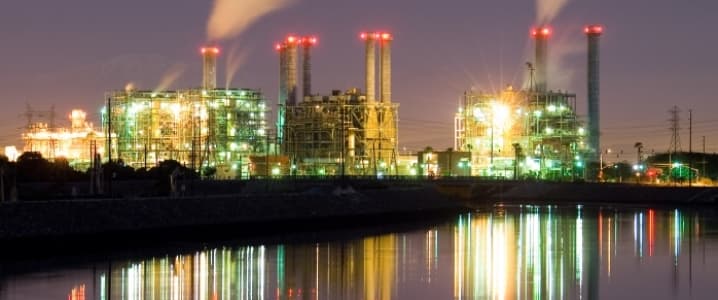One market that energy investors sometimes spend very little time thinking about is plastics. Despite the fact that plastics are an oil derivative, energy investors tend to focus on other end markets for oil. In the present environment though, where demand for oil from every source is critical, that short-sightedness is a mistake. And with a major new investment in plastics coming online soon, oil investors should consider how the changing environment will affect traditional players like Dow and DuPont in the space for derivative chemicals.
The major new plastics investment in question comes from a Chinese firm. Rongsheng Petrochemical is investing $24 billion in building a refinery for plastics and chemicals. The facility will be south of Shanghai on the Island of Zhoushan and is forecasted to process 400,000 barrels a day, 10.4 million metric tons of aromatics a year. This comes as quite a shock considering most oil companies wouldn’t bet as much on such a proportionally small industry.
Rongsheng only holds 51 percent of the facility, the rest belonging to Tongkun Group Co., Juhua Group, and Zhoushan Marine Comprehensive Development and Investment, all of which are privately owned. All of the companies will fund the construction of the refinery. The project will stretch over 10,000 acres and is predicted to be the fifth largest refinery in the world.
As of last quarter, only $4.8 billion is spent on chemicals, marginally less than the $8 billion in capital expenditures on oil. The market for chemicals is significantly smaller than oil; making speculators do a double take at the refinery that is projected to be as large as other oil refineries, except strictly plastics and chemicals. On top of this, the market for plastics is fairly constant, capital expenditures have only grown $1 billion in the past two decades. The inundation of plastics will likely upset the market, once the refinery is complete.
With global strides towards green energy, governments and corporations are easing off coal and oil consumption. Oil demand will undeniably decline once electric cars become more prominent as well as the integration of more renewables into the power grid. This drop will complicate business for oil producers, making the market for plastics surprisingly enticing. Exxon Mobil relies heavily on chemicals for their revenue; they in fact brought in the most revenue during the first quarter of the year. By investing such a substantial sum into the plastics and chemical industry, Rongsheng is hedging their risk and will effectively profit comparable to Exxon. Related: Inside OPEC: What Does Each Member Want?
Demand for petrochemicals that go into making plastic bottles has jumped in the past several years in China. The nation imported 11.6 million tons of paraxylene in 2015, roughly half of the amount consumed. Producing these chemicals locally will reduce China’s costs of importing. This past July however, capital spending on oil fell 10 percent and coal mining 13 percent. This resulted in an 8.1 percent drop in crude production or 3.95 million fewer barrels a day. President Xi Jinping is attempting to limit the use of dirty energy in the nation by enforcing regulations on companies and closing coal mines.
Rongsheng’s shares dropped half of a percent on the 14th of September when news circulated , but the growth potential is vast as long as the optimistic firm doesn’t flood the market. Investors should potentially avoid or short Petrochina and Sinopec as they will see reduced market share in the petrochemical industry as this refinery comes online. These companies will likely continue their level of production upon completion of the refinery meaning petrochemicals will overextend demand. With an increase in activity for crude, supply will rise and the futures market will see a decline in price. A reduction in imports will also result in a higher yield for the Chinese Yuan. The refinery is scheduled to be completed by 2018.
By Michael McDonald of Oilprice.com
ADVERTISEMENT
More Top Reads From Oilprice.com:
- Why Oil Prices Can’t Stay Low For Much Longer
- Tesla’s Model 3 Could Take 300,000 Bpd Off U.S. Gasoline Demand
- Is The Next Shale Boom About To Unfold In Mexico?



















For more than a century, the world has relied on oil, natural gas and coal to meet her energy needs. This over-reliance has largely put pressure on fossil fuel, threatening its availability for future generations. In less than two centuries, we are quickly depleting a resource that took millions of years to form.